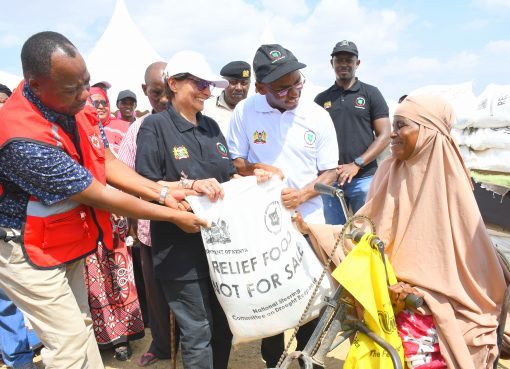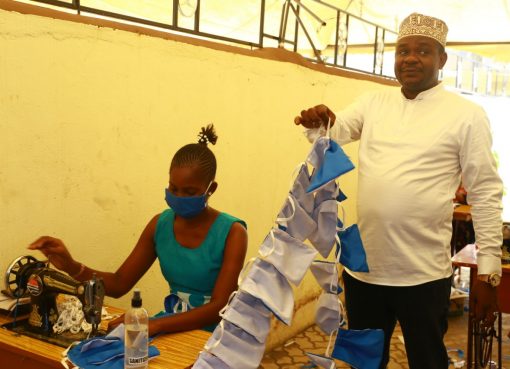As the drought continues to ravage parts of the country, Kilifi County is not spared either as the famine has caused adverse social effects with some families breaking up in some parts of Ganze and Kaloleni Sub Counties.
Residents of Midoina and Migujini in Mitangani location, Ganze Sub County have been suffering in silence as the area lacks food and water forcing some villagers to move out of the area while health staff working at Midoina dispensary have been forced to fetch water from Kibanda Matso water pan in Kwale County.
National Drought Management Authority team which has been going round to assess the food and water situation in the area revealed that some water pans had dried up while a few others had water which can only last the month of April should the rains fail.
NDMA county coordinator Adam Kheri Ndamungu told KNA that the situation was not alarming yet, because some farmers had harvested some little maize during the October-December 2018 short rains season.
He estimated those in need of famine relief food rations at 120, 000 people spread in all parts of the County.
Residents interviewed in Midoina said the biggest challenge had been lack of water without which, even food cannot be cooked revealing that their only water pan in the area dried up two weeks ago.
A village elder in the area Kazungu Ponda said some couples had separated because either the husband or wife had moved to urban centres in Mariakani, Mombasa or Kilifi to seek for casual employment.
“We have had cases of broken families here in the past droughts of either the husband or wife leaving for urban centres to seek employment and never to return again.
In the 2016-17 drought periods, we received seven cases of wives who left and never returned to the area until now,” he told KNA at Midoina shopping centre.
He said attempts by the local administrators to bring back together the affected families did not yield any fruits as those traced said they did not wish to go back to that hardship area where they find no hope in life over lack of water.
At Tsangatsini location in Kaloleni Sub County, some women usually leave their homes during the drought but later go back when the rains begin to start cultivating their farms.
According to a village elderKiragaUnda, women have been making arrangements with their husbands to move to Mombasa where they seek casual employment as house helps during the drought season as the men take care of the children.
“Men here are used to that arrangement when the drought sets in. This is a way of survival as the women easily get casual employment in Asian families than men.
Men are left behind to deal in charcoal burning to support the children,” he said.
Kiraga stated that the problem of water had been serious after the water pans dried up forcing the locals to purchase water at between Sh50 and Sh100 per 20-litre jerrican from bodaboda riders who ferry the commodity to needy homes from Mariakani town.
The most affected residents include non-local teachers working in the area who are charged as much as sh150 for the 20 litre jerrican.
A local businessman at Gedi trading centre, 30 kilometres from Midoina Mr.Daniel Karisa Kalama said his business had been dwindling day by day as he was forced to sell a packet of maize flour at a cheaper price than its cost to some suffering families.
He said those who went to his premises claim to have spent all the money they had to purchase water.
Kilifi county commissioner on the other hand said the national government had been supporting worst affected families with assorted maize, beans and rice in parts of Ganze and Magarini Sub Counties while additional relief food is expected for distribution in Kaloleni and Rabai Sub Counties.
Efforts to get comments from the relevant departments charged with the responsibility of food and water did not succeed as most of their offices remained without staff.
By Harrison Yeri




